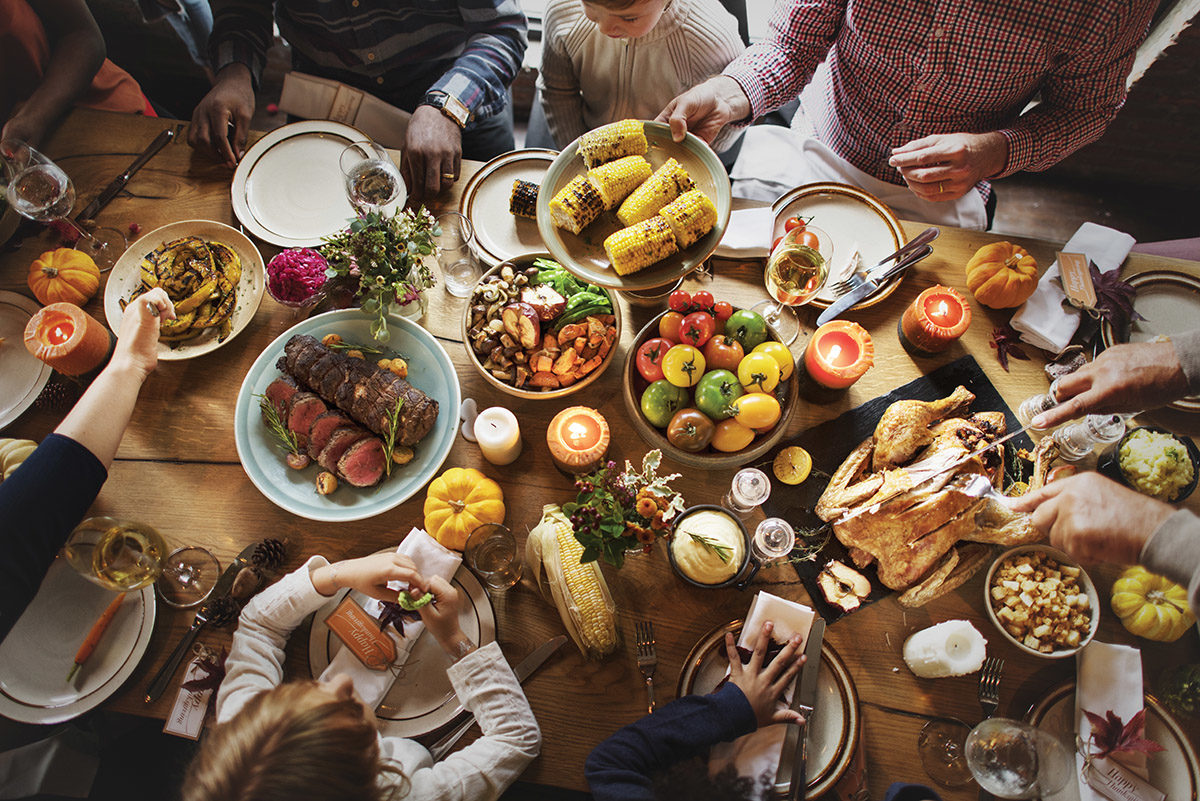Ten thousand meals. That’s what I figure I’ve served my family over 30 years of marriage and 20 years of parenting. In the time it took to make all those meals, I could have written a novel, learned to play the piano or started a small non-profit. Instead, I fed my family.
Mostly, I was happy to do this. I puréed baby food, marinated tofu and peeled potatoes. I sent my two daughters to school with sandwiches wrapped in neatly folded biodegradable wax paper. I lit candles every night at dinner because I believed the supper hour held special curative powers that would bond our clan as well as keep vitamin deficiency at bay.
But sometimes I hated it. I hated it when no one came to the table when I repeatedly hollered “Dinner!” like a fishwife from the bottom of the stairs. I hated it when my kids argued practically every single night about doing the dishes.
The dinner hour felt both nurturing and oppressive, which might explain why a lot of people — women in particular — are torn between loving and loathing Thanksgiving. To create that lively together time at the table, many dull hours are spent stuffing delicately seasoned chunks of bread into a big bird’s butt. Because, let’s face it, feminism is on the back burner in most kitchens — Canadian women prepare the bulk of all meals and do three-quarters of the grocery shopping, according to a 2016 survey by Leger Marketing. The Crock-Pot hasn’t caught up with gender politics.
I am not a fancy cook — I’ve never made risotto or a béchamel sauce. Essentially, I prepared the same seven dinners for decades. But I rarely missed a meal. In my mind, I was a great and powerful kitchen magician, Oz in an apron, waving a spatula so the smell of home cooking wafted through the house, a protective potion from the ills of the world. My idea of good parenting meant putting nutritious food on the table pretty much every night of the week. That’s what my mother did and her mother before her.
I got some things right. I insisted that my husband stop answering dinner-hour calls from telemarketers, and my kids did not bring their devices to the table. I used every trick in the book to get them to open up. When they were young, we shared our “mads, glads and sads” of the day. As they got older, I asked open-ended questions: “Do you think we should give money to people on the street?” “What would you do if you got pregnant?” My daughters became animated conversationalists. We talked about all the things you aren’t supposed to in polite company, including religion, sex and politics.
But there were those times I hated it. My husband once put a pizza in the oven upside down in what I took as a purposeful act of culinary sabotage so I’d stop asking him to help. As dusk fell and I still had a writing deadline to meet, my family would start to circle the kitchen like expectant condors scavenging for fresh kill. So yes, sometimes the soup was served with a simmering soupçon of resentment.
I wanted my family to help more, but it was tough to convince them since I had done everything for years. After all, I was the one who continued to cut up apple slices for my kids as a bedtime snack well into their teens. I was the one who elbowed my husband out of the way when he burned the eggs. Psychologists call this learned helplessness, and I was an expert instructor.
What was in it for me? A certain measure of control, perhaps. As the sole provider of every bite that fed my family, I felt needed, maybe even indispensable.
I also spent an inordinate amount of time in the kitchen because I knew about the large body of evidence proving the value of family dinner. Kids are less likely to smoke, drink, do drugs, feel depressed, get pregnant or consider suicide if they regularly pass the peas with their clan. They’re smarter and more connected to their families, too. Anne Fishel, a family therapist and psychology professor at Harvard Medical School, helped launch a web-based initiative called the Family Dinner Project to increase the frequency and quality of family meals. “Dinners are to families like sex is to couples — they are a medium for connection,” she says. She’s sometimes tempted to advise the troubled families she counsels to have dinner together instead of therapy.
Beyond the science, family mealtime is the place marker of memory and kinship. It’s why we can’t throw out our grandmother’s splattered cookbook even though we’ll never make her tomato aspic. The dinner table offers both routine and ritual, tenderness and tension. “Cooking is the basis for relationships,” writes Louise O. Fresco, author of Hamburgers in Paradise: The Stories Behind the Food We Eat. “The call to the table marks the moment in the day at which everything else must give way to communality.”
Many of us are enamoured with the idea of cooking — witness the popularity of $50,000 kitchen renos and the hit TV show Top Chef — but fewer of us are actually doing it anymore. One-third of American families eat in front of the TV, one in every five meals is consumed in a car and 40 percent of families eat dinner together three times per week or less.
Is the family dinner worth saving? I think so, but maybe we (and by “we,” I mainly mean women) need to lower our expectations. I’m trying to do that now by embracing the less-is-more philosophy of the writer Nora Ephron, who declared, “There is no point making piecrust from scratch.” Now that my kids are 17 and 20, I’ve cut back meal production to three times a week — after 10,000 meals, I’m doling the rest out sparingly. The funny thing is that my daughters seem more grateful than ever for anything I make. And with me out of the way, they are stepping up a bit. The other night, my oldest made a delicious veggie coconut curry. We’re also eating later and ordering more takeout. It took me a long time to realize I don’t need to be the queen of the kitchen.
I don’t think my children will remember much about my food when they leave home. I don’t have a signature dish like my mother’s seven-layer salad or my mother-in-law’s beef bourguignon. But I hope they’ll carry with them a sense of belonging that comes with having a seat at the table, and nourishment from more than the mashed potatoes. Perhaps a quote often attributed to Ralph Waldo Emerson will resonate: “I cannot remember the books I’ve read any more than the meals I have eaten; even so, they have made me.”
Did I waste too much of my life in front of the stove? Maybe. Should I have worked harder to enlist the help of my husband and kids? Definitely. Will I be cooking a turkey this Thanksgiving? No, but I will make a hearty pot of soup. And you can bet I’ll ladle it out with a whole lot more love than I would if I was scooping stuffing.
This story was originally featured in The Observer’s October 2017 edition with the title “10,000 meals.”


Comments